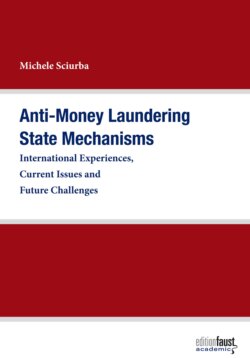Читать книгу Anti-Money Laundering State Mechanisms - Michele Sciurba - Страница 15
II.2 Combating Tax Evasion under the Anti-Money Laundering Framework
ОглавлениеAt the London Summit in April 2009, the industrial nations declared that the fight against tax evasion was a policy priority at the OECD level and the integration of measures against tax evasion were an important part of their AML strategy.72 The final report of the G20 Working Group on Reinforcing International Cooperation and Promoting Integrity in Financial Markets not only contributed to the strengthening and harmonisation of international standards, but also formulated a joint approach to taking action against uncooperative jurisdictions and tax havens. As set out in the report, the G20 Working Group asks all countries to implement the 40+9 FATF Recommendations without delay and, as stated in the following, urges:
[…] the international bodies responsible for prudential and regulatory standards, anti money laundering and terrorist financing, and tax matters – the FSF, the FATF and the OECD – to accelerate their work of identifying uncooperative jurisdictions and developing a toolbox of effective countermeasures against these jurisdictions; they should update G20 Finance Ministers and Central Bank Governors.73
At the OECD’s insistence and due to rising international pressure, most tax havens signed 12 individual information exchange treaties. The world’s tax havens signed more than 300 treaties in total from April to the end of 2009 in order to bypass the threat of sanctions.74 After the GFC, massive public protests against corporate tax avoidance took place in the US, the UK and many other countries.75 This international outcry led to the implementation of the Foreign Account Tax Compliance Act (FATCA)76, which regulates the exchange of information concerning US citizens with foreign bank accounts and has been signed by the EU member states and numerous other countries. In 2014, the Automatic Exchange of Information (AEOI)77, created after the US model, was introduced at the OECD level to provide for a comprehensive automatic exchange of information on financial accounts. The 4th AMLD is a reflection of these agreements that have made the fight against tax evasion a central element of the AML framework.
